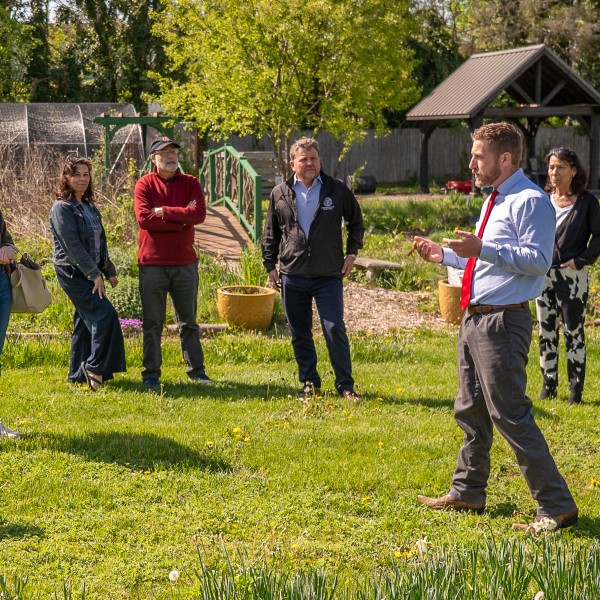New York City teachers got an in-depth lesson from Cornell experts this summer about extreme weather preparedness and innovative teaching methods for sharing climate science with students.
The workshop Aug. 7-9 was part of a crowd funding campaign to bring climate science to every high school in the U.S. New York Sea Grant (NYSG) partnered with the Cornell-affiliated Paleontological Research Institution (PRI) to host “Climate-to-Go,” a climate science workshop at the New York City Department of Education’s Summer STEM Institute. The event introduced 20 teachers from K-12 public schools across New York City to climate change issues.
The first day of the collaborative workshop focused on the effects of carbon dioxide (CO2) on the Earth’s energy balance. Teachers dug into the issues putting pressure on Earth’s climate system and reviewed important factors for maintaining a habitable climate. By the end of the day, the educators learned to explain how CO2 emissions trap heat in the atmosphere and were able to conceptualize the Earth’s energy balance.
Teachers at the event said that the workshop helped them consider new ways to present challenging science in the classroom.
“During our unit on climate change in school last year, we struggled with the lab we did with students,” said one teacher at the training. “I liked how all of [today’s] materials were easy to obtain and how the presenter compared experimental results to real life.”
As part of the workshops, teachers toured the Cornell Tech campus on Roosevelt Island. The new facilities were designed and constructed to be responsive to the new challenges of a coastal city vulnerable to climate change.
Nordica Holochuck, NYSG’s Hudson River estuary specialist, led the teachers through an activity from the NYSG Climate Change Lesson Plan Project. Working in small groups, teachers used simple surveying methods to visualize projected future shorelines.
The final day of the event helped teachers explain strategies for mitigating carbon emissions from large-scale energy use. The teachers also examined strategies for resilience against major effects of climate change impacting New York City.
As part of the climate resilience education, Helen Cheng, NYSG’s coastal resilience specialist, and Holochuck introduced Climate-to-Go bags. The bags serve as an example of what to pack in a climate go-bag, and contained several elements of a climate go-bag as recommended by NYC Emergency Management: a water bottle, non-perishable food, a waterproof container, a flashlight, first-aid kit, a thumb drive, and a Mylar blanket—all with attached educational explanations.
Before completing the workshop, participating teachers were supplied with the Teacher-Friendly Guide to Climate Change, a curriculum published by PRI and written for teachers covering the basics of climate change science and perspectives on teaching the subject.
“This workshop provided numerous resources and approaches to climate change,” said an educator at the teacher-training event. “This has allowed me to rethink how I can teach my kids what they need to know and what they can do.”






